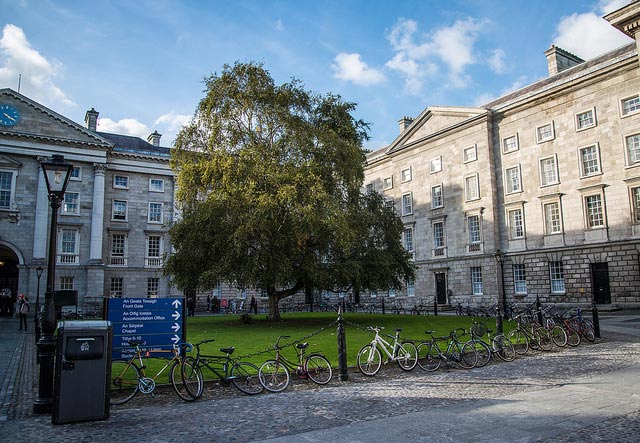A proposal to create a student partnership agreement, spearheaded by the Education Officer of Trinity College Dublin Students’ Union (TCDSU), Dale Whelehan, is hoping to improve the engagement and partnership of Trinity students and staff.
The proposal, which is currently in its first stage of development, was brought to the attention of the Student Life Committee on November 15th. This committee is responsible for the oversight of the various student services in Trinity and is comprised of both students and staff appointed by the College Board.
According to the proposal document, seen by The University Times, the purpose of the change would be to create a “transformative high-quality learning experience through a meaningful staff-student partnership that engenders a shared responsibility”. By having a clear partnership agreement as part of the student charter, it is hoped that students will become more engaged in the decision-making processes of College, the proposal explains.
The College Board endorsed the existing student charter on July 8th, 2009. The charter claims to “outline rights and responsibilities among the various groups in the College community”. This new proposal, however, insists that rights and responsibilities alone are not enough to encourage active participation in the development of the College process from either students or staff.
Speaking to The University Times, Whelehan stated that the student charter “was very much led by the SU, driven by the SU” and that he was conscious that the charter was made by the union “without any consultation. There was no buy in for it”. Whelehan has thus been conscious of involving staff in the process.
“We should have common goals. Students should give a little, staff should give a little. It should be give and take, but it shouldn’t be this hostile environment”, Whelehan stated. Instead he is seeking to “increase the responsibility and maturity of students in taking ownership of their education but then also the responsibility of staff in realising the importance of the students as stakeholders in their education – so it’s a give and take”.
The charter “very much looks at the rights and responsibilities” of both staff and students, said Whelehan, adding that “if that’s all an institution hopes to achieve, that’s not very forward looking”. The proposal also will be different to the charter in that it looks at both academic and non-academic engagement.
Academically, Whelehan is proposing solutions as to why “students don’t get engaged with their teaching and learning”, including students becoming involved in the formation of feedback surveys and students and staff both evaluating a module together as well as the possibility of having academic student representatives who “would be in a position to evaluate at a programme level, across the four years, as opposed to individual modules”.
Whelehan has, along with the Academic Secretary, been speaking to the College’s schools, with the hope of speaking to all schools “by February”.
A steering committee has also been set up to look at issues faced by students beyond their academic lives. Whelehan is proposing that each College service set up a student advisory group that could identify “three or four projects that students and staff would work on on an annual basis for review, next year”. By undertaking continuous review, Whelehan hopes the document can become “a living document”.
In April of this year, the Higher Education Authority (HEA) published a report from the Working Group on Student Engagement in Irish Higher Education, which called for greater transparency and inclusivity in college’s decision-making processes as well as warning against the “market model” of student engagement that is common in colleges in the US. The HEA are consequently piloting the National Student Engagement Programme (Nstep), in collaboration with the Union of Students in Ireland (USI) and Quality and Qualifications Ireland (QQI). This initiative aims to work with pilot institutions to assess and improve student engagement and is currently supporting Trinity’s efforts, the proposal confirms.
The proposal also refers to examples of partnership agreements already established in Scottish universities. This was undertaken with the help of Student Partnerships in Quality Scotland, referred to as Sparqs, an organisation founded in 2003 and funded by the Scottish Funding Council, who are acting as consultants on the Nstep project.
Whelehan stated that this partnership would be similar to the Nstep programme but approached “in a different way”. “They’re doing it through working groups and things like that, but I’ve already done the consultation and stuff with the students”, he stated.
“Students are massive stakeholders in third-level, so therefore they should play a role in the development and in all of the processes that take place in College”, Whelehan added.
“Without a doubt we have very good governance structures in Trinity and democratic representation…whereas some institutions don’t, but that alone is not enough. Having the structures there is great, but actually what’s the difference between attendance and actual participation? And how often have we, as students, sat down at school exec meetings or whatever and felt that we were tokenistic?”.
In the proposal, it is envisioned that, after a period of consultation with class representatives and schools, expected to be completed by January or February 2017, it will be reviewed by a number of committees and eventually the College Board during Hilary term 2017.







